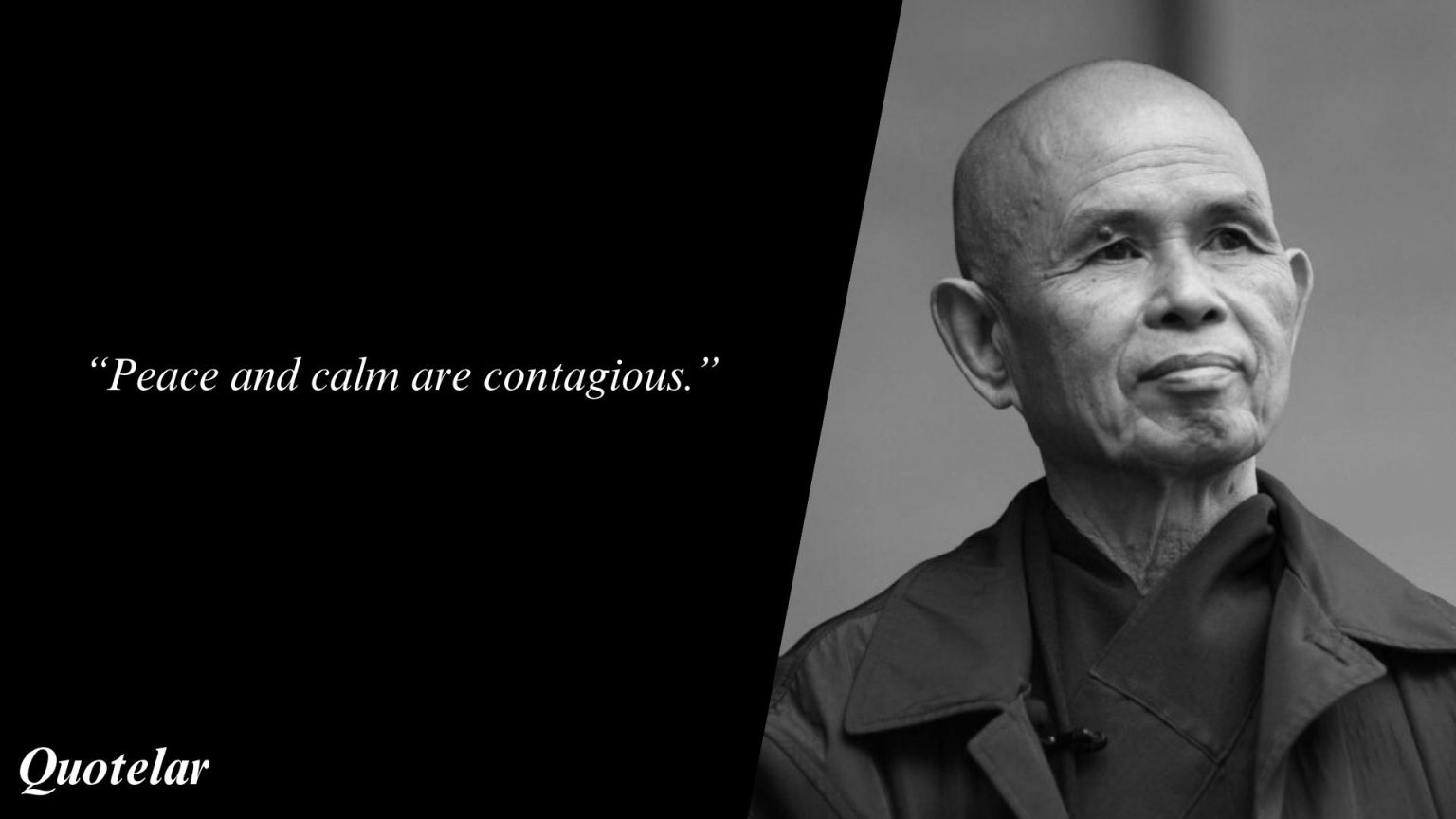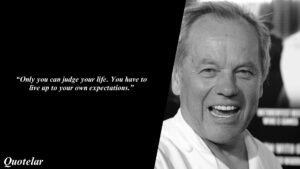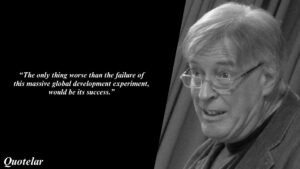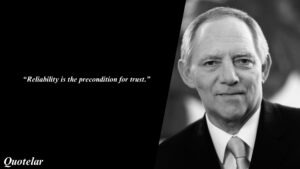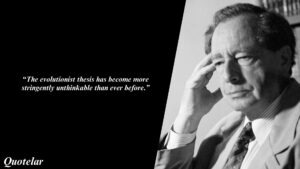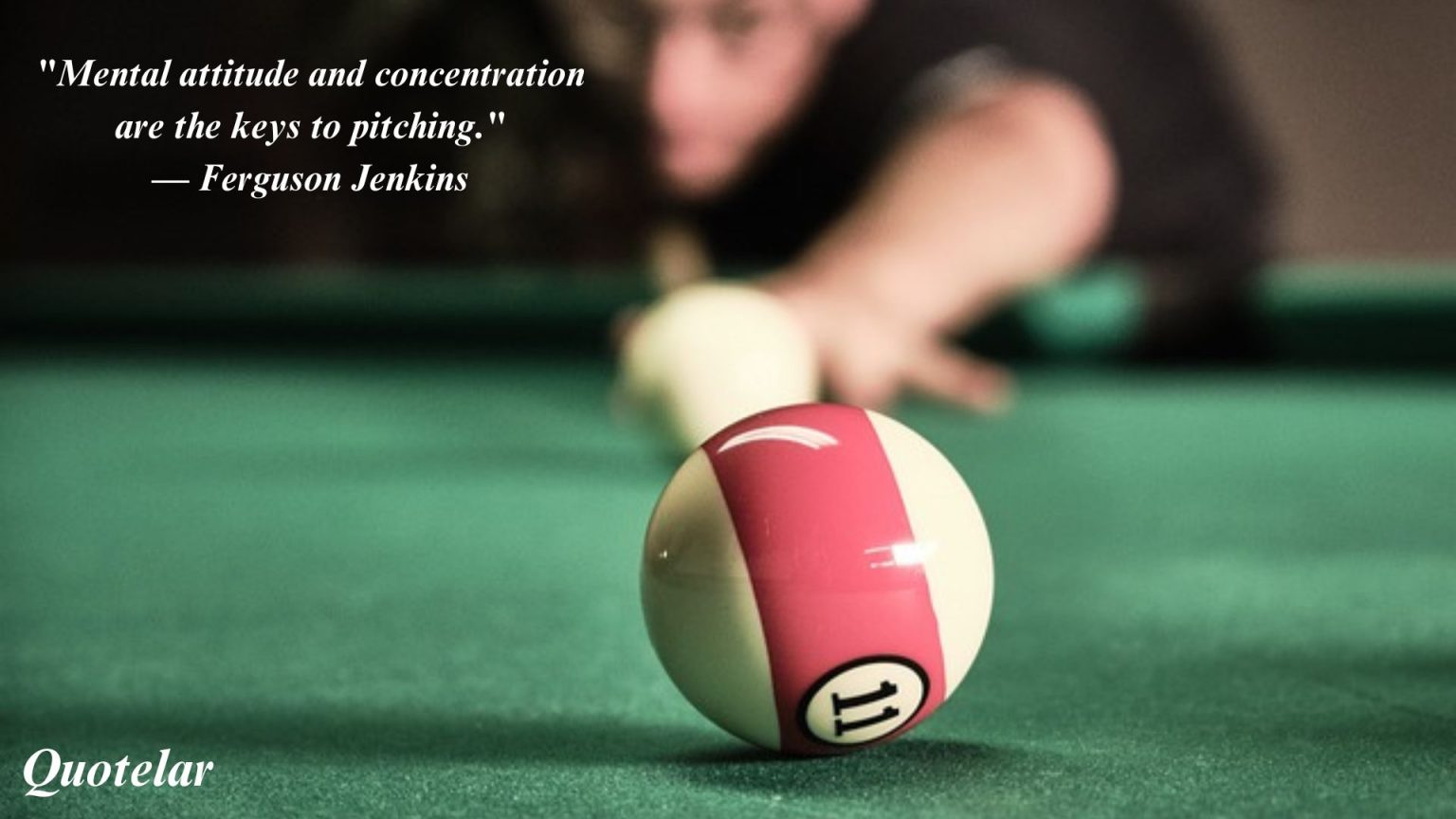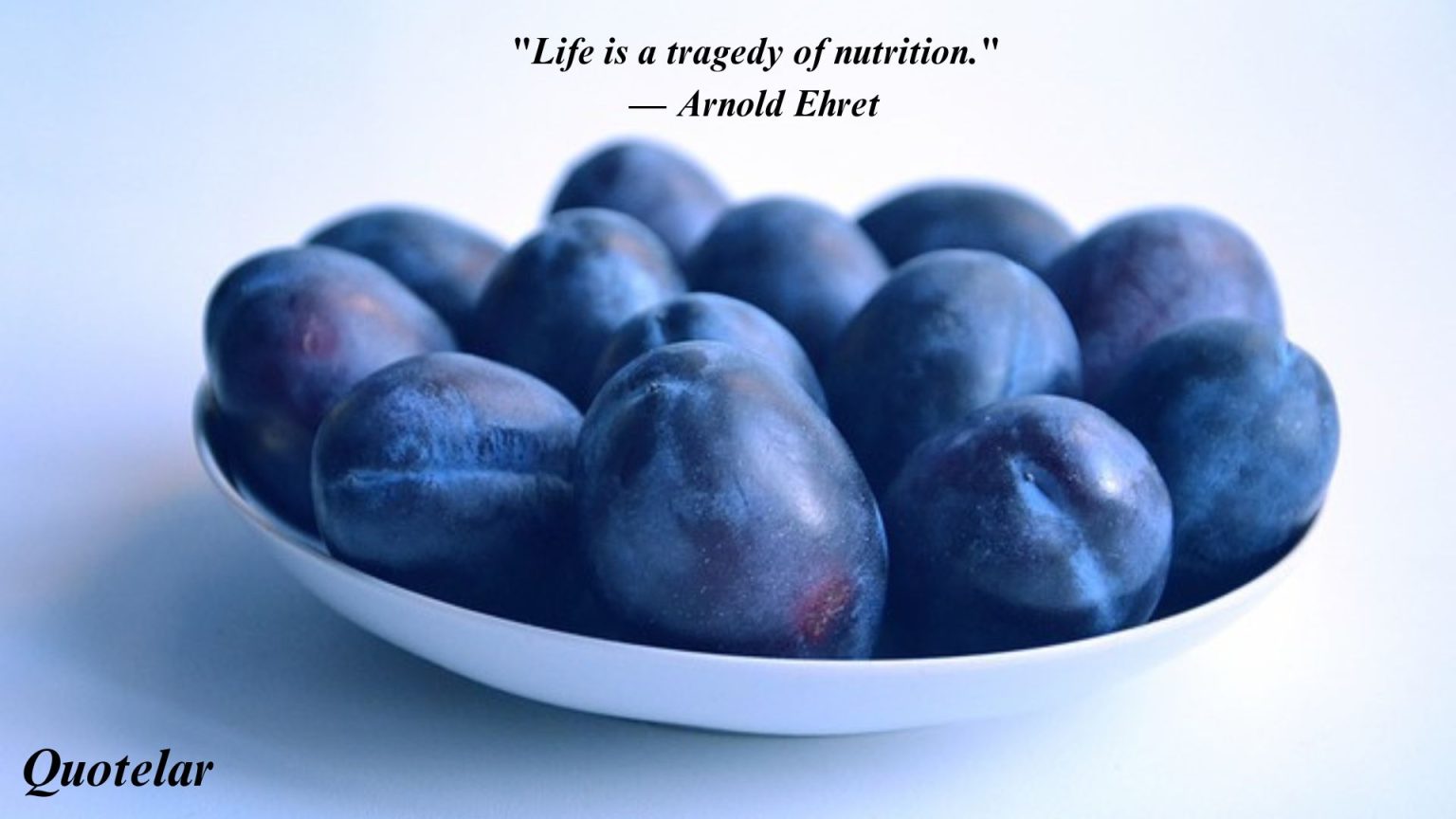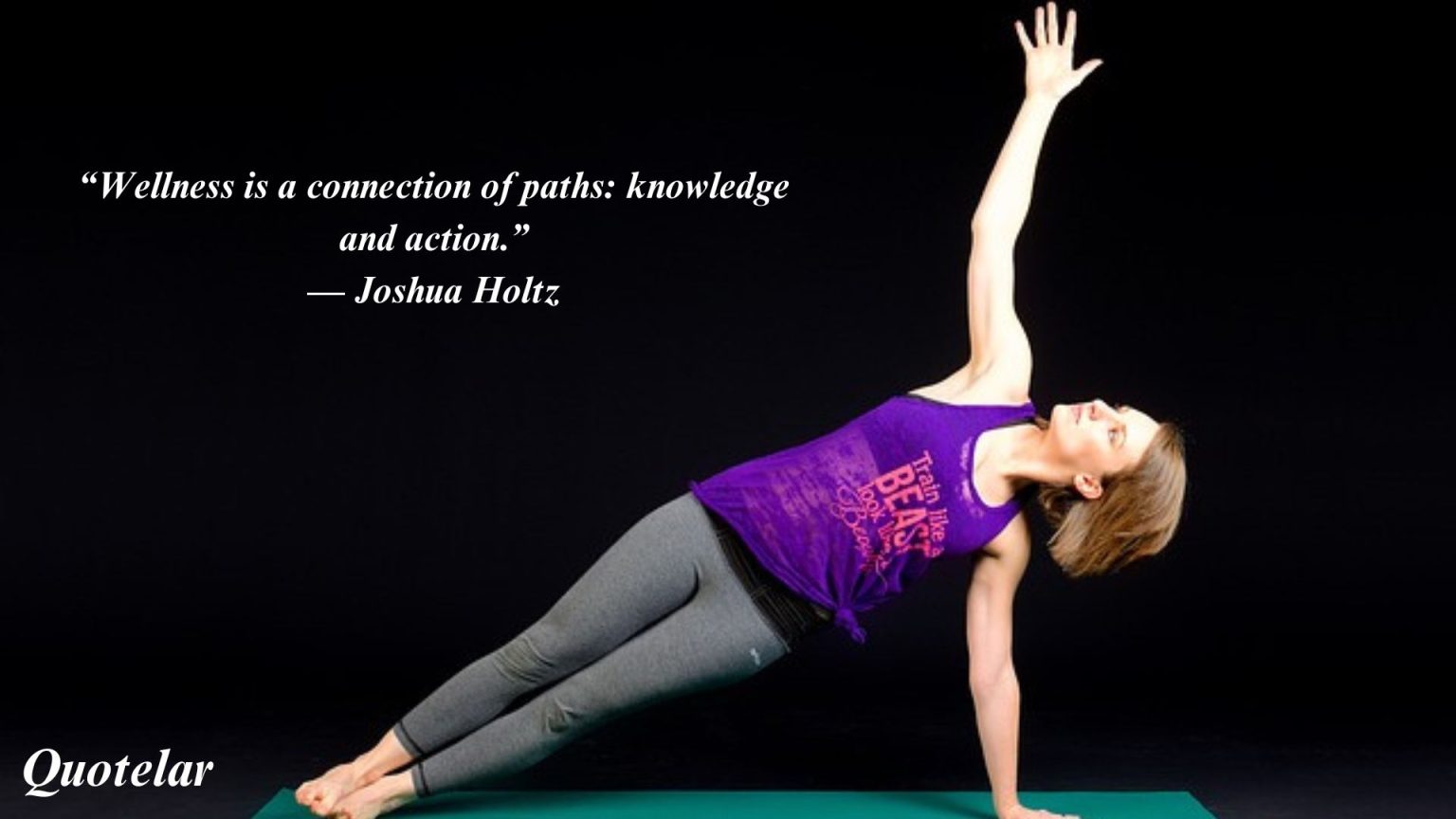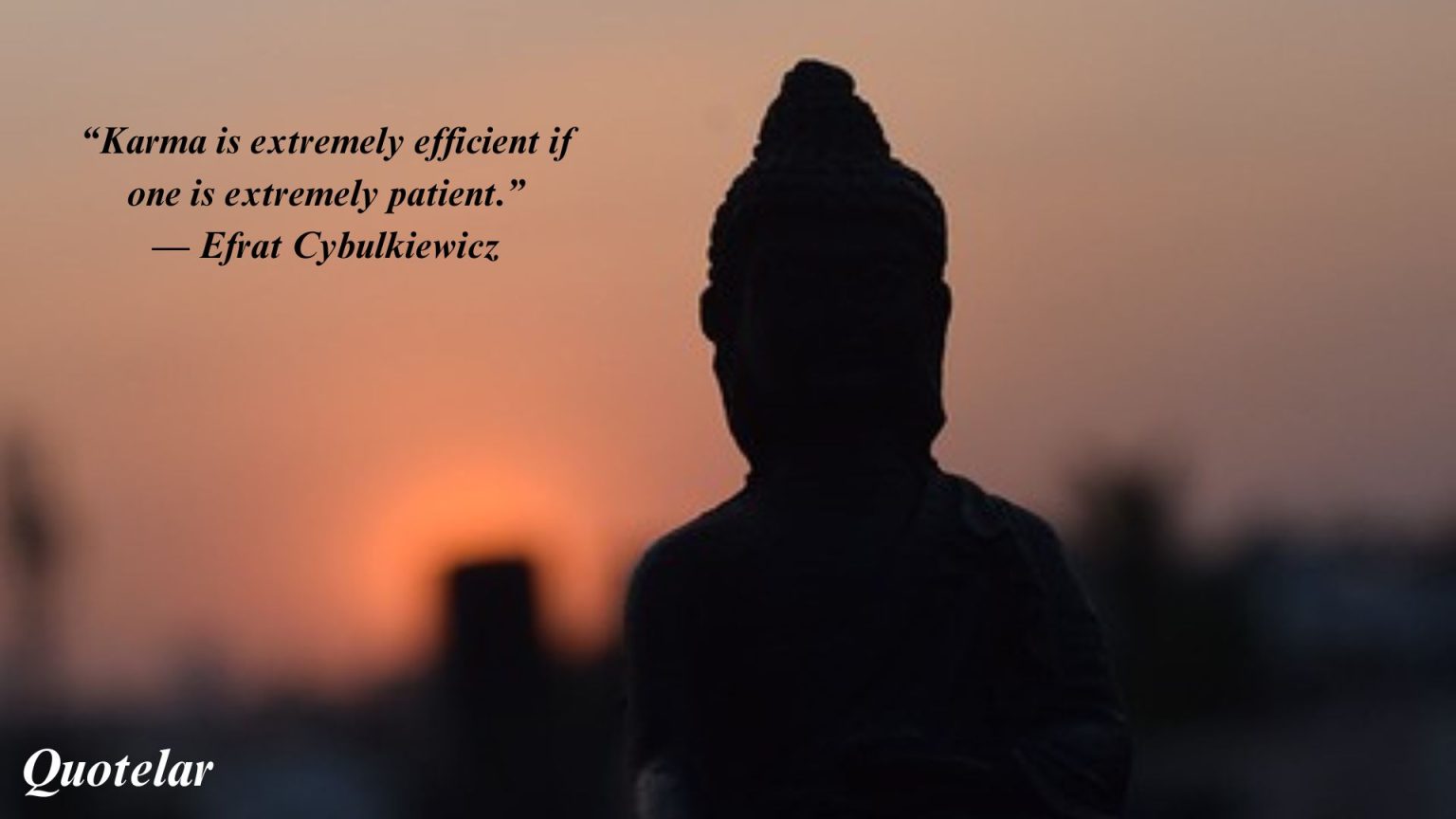Thích Nhất Hạnh (1926-2022) was a Vietnamese Zen Buddhist monk, peace activist, and author. A pioneer of “engaged Buddhism,” he advocated for social justice and peace. Exiled from Vietnam for opposing the war, he spread mindfulness teachings worldwide, founding the Plum Village tradition. He established monasteries, gave retreats, and promoted nonviolent solutions through deep listening and environmental awareness. After a long exile, he returned to Vietnam and lived at his root temple until his death at 95.
Thich Nhat Hanh Quotes
1. “To be beautiful means to be yourself. You don’t need to be accepted by others. You need to accept yourself.”
— Thich Nhat Hanh
2. “Waking up this morning, I smile. Twenty-four brand new hours are before me. I vow to live fully in each moment and to look at all beings with eyes of compassion.”
— Thich Nhat Hanh
3. “Smile, breathe, and go slowly.”
— Thich Nhat Hanh
4. “Breathing in, I calm body and mind. Breathing out, I smile. Dwelling in the present moment I know this is the only moment.”
— Thich Nhat Hanh
5. “Letting go gives us freedom, and freedom is the only condition for happiness. If, in our heart, we still cling to anything – anger, anxiety, or possessions – we cannot be free.”
— Thich Nhat Hanh
6. “We are here to awaken from our illusion of separateness.”
— Thich Nhat Hanh
7. “Life is available only in the present moment.”
— Thich Nhat Hanh
8. “Compassion is a verb.”
— Thich Nhat Hanh
9. “Feelings come and go like clouds in a windy sky. Conscious breathing is my anchor.”
— Thich Nhat Hanh
10. “Thanks to impermanence, everything is possible.”
— Thich Nhat Hanh
11. “You must love in such a way that the person you love feels free.”
— Thich Nhat Hanh
12. “Our own life has to be our message.”
— Thich Nhat Hanh
13. “When another person makes you suffer, it is because he suffers deeply within himself, and his suffering is spilling over. He does not need punishment; he needs help. That’s the message he is sending.”
— Thich Nhat Hanh
14. “Only the present moment contains life.”
— Thich Nhat Hanh
15. “I promise myself that I will enjoy every minute of the day that is given me to live.”
— Thich Nhat Hanh
16. “Because of your smile, you make life more beautiful.”
— Thich Nhat Hanh
17. “The most precious gift we can offer anyone is our attention. When mindfulness embraces those we love, they will bloom like flowers.”
— Thich Nhat Hanh
18. “The past is gone, the future is not yet here, and if we do not go back to ourselves in the present moment, we cannot be in touch with life.”
— Thich Nhat Hanh
19. “The wave does not need to die to become water. She is already water.”
— Thich Nhat Hanh
20. “The secret of Buddhism is to remove all ideas, all concepts, in order for the truth to have a chance to penetrate, to reveal itself.”
— Thich Nhat Hanh
21. “Sometimes your joy is the source of your smile, but sometimes your smile can be the source of your joy.”
— Thich Nhat Hanh
22. “Breathing in, there is only the present moment. Breathing out, it is a wonderful moment.”
— Thich Nhat Hanh
23. “My actions are my only true belongings. I cannot escape the consequences of my actions. My actions are the ground on which I stand.”
— Thich Nhat Hanh
24. “If we do not know how to take care of ourselves and to love ourselves, we cannot take care of the people we love. Loving oneself is the foundation for loving another person.”
— Thich Nhat Hanh
25. “In mindfulness one is not only restful and happy, but alert and awake. Meditation is not evasion; it is a serene encounter with reality.”
— Thich Nhat Hanh
26. “Breath is the bridge which connects life to consciousness, which unites your body to your thoughts. Whenever your mind becomes scattered, use your breath as the means to take hold of your mind again.”
— Thich Nhat Hanh
27. “Walk as if you are kissing the Earth with your feet.”
— Thich Nhat Hanh
28. “For things to reveal themselves to us, we need to be ready to abandon our views about them.”
— Thich Nhat Hanh
29. “Drink your tea slowly and reverently, as if it is the axis on which the world earth revolves – slowly, evenly, without rushing toward the future.”
— Thich Nhat Hanh
30. “The true miracle is not walking on water or walking in air, but simply walking on this earth.”
— Thich Nhat Hanh
31. “I am determined to practice deep listening. I am determined to practice loving speech.”
— Thich Nhat Hanh
32. “When we are mindful, deeply in touch with the present moment, our understanding of what is going on deepens, and we begin to be filled with acceptance, joy, peace and love.”
— Thich Nhat Hanh
33. “The seed of suffering in you may be strong, but don’t wait until you have no more suffering before allowing yourself to be happy.”
— Thich Nhat Hanh
34. “If in our daily life we can smile, if we can be peaceful and happy, not only we, but everyone will profit from it. This is the most basic kind of peace work.”
— Thich Nhat Hanh
35. “Peace is present right here and now, in ourselves and in everything we do and see. Every breath we take, every step we take, can be filled with peace, joy, and serenity. The question is whether or not we are in touch with it. We need only to be awake, alive in the present moment.”
— Thich Nhat Hanh
36. “Understanding means throwing away your knowledge.”
— Thich Nhat Hanh
37. “In true love, you attain freedom.”
— Thich Nhat Hanh
38. “The mind can go in a thousand directions, but on this beautiful path, I walk in peace. With each step, the wind blows. With each step, a flower blooms.”
— Thich Nhat Hanh
39. “At any moment, you have a choice, that either leads you closer to your spirit or further away from it.”
— Thich Nhat Hanh
40. “Usually when we hear or read something new, we just compare it to our own ideas. If it is the same, we accept it and say that it is correct. If it is not, we say it is incorrect. In either case, we learn nothing.”
— Thich Nhat Hanh
41. “There is no enlightenment outside of daily life.”
— Thich Nhat Hanh
42. “The source of love is deep in us and we can help others realize a lot of happiness. One word, one action, one thought can reduce another person’s suffering and bring that person joy.”
— Thich Nhat Hanh
43. “It is my conviction that there is no way to peace – peace is the way.”
— Thich Nhat Hanh
44. “We have more possibilities available in each moment than we realize.”
— Thich Nhat Hanh
45. “The miracle is not to walk on water. The miracle is to walk on the green earth, dwelling deeply in the present moment and feeling truly alive.”
— Thich Nhat Hanh
46. “If you love someone but rarely make yourself available to him or her, that is not true love.”
— Thich Nhat Hanh
47. “Our notions about happiness entrap us. We forget that they are just ideas. Our idea of happiness can prevent us from actually being happy. We fail to see the opportunity for joy that is right in front of us when we are caught in a belief that happiness should take a particular form.”
— Thich Nhat Hanh
48. “In true dialogue, both sides are willing to change.”
— Thich Nhat Hanh
49. “If we are not fully ourselves, truly in the present moment, we miss everything.”
— Thich Nhat Hanh
50. “If you look deeply into the palm of your hand, you will see your parents and all generations of your ancestors. All of them are alive in this moment. Each is present in your body. You are the continuation of each of these people.”
— Thich Nhat Hanh
51. “When you say something really unkind, when you do something in retaliation your anger increases. You make the other person suffer, and he will try hard to say or to do something back to get relief from his suffering. That is how conflict escalates.”
— Thich Nhat Hanh
52. “There is no way to happiness – happiness is the way.”
— Thich Nhat Hanh
53. “Each moment is a chance for us to make peace with the world, to make peace possible for the world, to make happiness possible for the world.”
— Thich Nhat Hanh
54. “Attachment to views is the greatest impediment to the spiritual path.”
— Thich Nhat Hanh
55. “Tomorrow, I will continue to be. But you will have to be very attentive to see me. I will be a flower or a leaf. I will be in these forms and I will say hello to you. If you are attentive enough, you will recognize me, and you may greet me. I will be very happy.”
— Thich Nhat Hanh
56. “If you suffer and make your loved ones suffer, there is nothing that can justify your desire.”
— Thich Nhat Hanh
57. “Whatever the tasks, do them slowly and with ease, in mindfulness. Don’t do any task in order to get it over with. Resolve to do each job in a relaxed way, with all your attention.”
— Thich Nhat Hanh
58. “Each time we practice sitting meditation, walking meditation, awareness of breathing, loving speech, deep listening, or any other mindfulness practice, our roots are growing stronger and deeper and we are gaining more solidity and strength.”
— Thich Nhat Hanh
59. “It is possible to live twenty-four hours a day in a state of love. Every movement, every glance, every thought, and every word can be infused with love.”
— Thich Nhat Hanh
60. “It is said that God has created man in his own image. But it may be that humankind has created God in the image of humankind.”
— Thich Nhat Hanh
61. “As long as you find something beautiful, good, and true to believe in and abide by, you have the equivalent of God in your life.”
— Thich Nhat Hanh
62. “By eating meat we share the responsibility of climate change, the destruction of our forests, and the poisoning of our air and water. The simple act of becoming a vegetarian will make a difference in the health of our planet.”
— Thich Nhat Hanh
63. “Until there is peace between religions, there can be no peace in the world.”
— Thich Nhat Hanh
64. “The most precious inheritance that parents can give their children is their own happiness.”
— Thich Nhat Hanh
65. “In. Out. Deep. Slow. Calm. Ease. Smile. Release. Present moment. Wonderful moment.”
— Thich Nhat Hanh
66. “Do not lose yourself in the past. Do not lose yourself in the future. Do not get caught in your anger, worries, or fears. Come back to the present moment, and touch life deeply. This is mindfulness.”
— Thich Nhat Hanh
67. “There is no birth and death; everything dies and renews itself all the time. When you get that kind of insight, you no longer tire yourself out with anxiety and aversion.”
— Thich Nhat Hanh
68. “You are part of the universe; you are made of stars.”
— Thich Nhat Hanh
69. “Being vegetarian here also means that we do not consume dairy and egg products because they are products of the meat industry. If we stop consuming, they will stop producing. Only collective awakening can create enough determination for action.”
— Thich Nhat Hanh
70. “The insight of interbeing helps us touch this wisdom of non-discrimination. It sets us free. We no longer want to belong just to one geographical area or cultural identity. We see the presence of the whole cosmos in us.”
— Thich Nhat Hanh
71. “Stress accumulates in our body. The way we eat, drink, and live takes its toll on our well-being. Lying down and bringing gentle awareness to our breath, we can realize rest and recovery for our physical body.”
— Thich Nhat Hanh
72. “Go back and take care of yourself. Your body needs you, your perceptions need you, and your feeling needs you. The wounded child in you needs you. Your suffering needs you to acknowledge it.”
— Thich Nhat Hanh
73. “To be truly present we have to stop our thinking. This is the secret of success.”
— Thich Nhat Hanh
74. “True love is like the sun, shining with its own light, and offering that light to everyone.”
— Thich Nhat Hanh
75. “Calming allows us to rest, and resting is a precondition for healing.”
— Thich Nhat Hanh
76. “Anxiety, the illness of our time, comes primarily from our inability to dwell in the present moment.”
— Thich Nhat Hanh
77. “True love includes a sense of responsibility and accepting the other person as she is, with all her strengths and weaknesses. If you only like the best things in a person, that is not love.”
— Thich Nhat Hanh
78. “Attachment to views, attachment to ideas, attachment to perceptions are the biggest obstacle to the truth.”
— Thich Nhat Hanh
79. “Without suffering there cannot be happiness. Without mud, there cannot be any lotus flowers.”
— Thich Nhat Hanh
80. “You listen not for the purpose of judging, criticizing, or analyzing. You listen only to help the other person to express himself and find some relief from his suffering.”
— Thich Nhat Hanh
81. “The only way to ease our fear and be truly happy is to acknowledge our fear and look deeply at its source.”
— Thich Nhat Hanh
82. “When we succeed in surviving strong emotions, we experience a more solid peace of mind.”
— Thich Nhat Hanh
83. “Breathing in, I am aware of my heart. Breathing out, I smile to my heart. I vow to eat, drink, and work in ways that preserve my health and well-being.”
— Thich Nhat Hanh
84. “We are very good at preparing to live, but not very good at living.”
— Thich Nhat Hanh
85. “Spirituality is not religion. It is a path for us to generate happiness, understanding, and love, so we can live deeply each moment of our life. Having a spiritual dimension in our lives does not mean escaping life or dwelling in a place of bliss outside this world but discovering ways to handle life’s difficulties and generate peace, joy, and happiness right where we are, on this beautiful planet.”
— Thich Nhat Hanh
86. “Everything depends on everything else. The One contains the many, and the many contains the One.”
— Thich Nhat Hanh
87. “The most effective way to show compassion to another is to listen, rather than talk. You have an opportunity to practice deep, compassionate listening. If you can listen to the other person with compassion, your listening is like a salve for her wound. In the practice of compassionate listening, you listen with only one purpose, which is to give the other person the chance to speak out and to suffer less.”
— Thich Nhat Hanh
88. “Living peacefully and happily is the best way to show our gratitude and is our greatest gift for the world and the next generation.”
— Thich Nhat Hanh
89. “We need the vision of interbeing – we belong to each other; we cannot cut reality into pieces. The well-being of “this” is the well-being of “that,” so we have to do things together. Every side is “our side”; there is no evil side.”
— Thich Nhat Hanh
90. “Meditation consists of generating three kinds of energy: mindfulness, concentration, and insight. These three energies give us power to nourish happiness and take care of our suffering. Suffering may be there. But with the energy of mindfulness, concentration, and insight, we can embrace and take care of that suffering and nourish happiness at the same time.”
— Thich Nhat Hanh
91. “Meditation is not evasion; it is a serene encounter with reality.”
— Thich Nhat Hanh
92. “To love is to recognize; to be loved is to be recognized by the other.”
— Thich Nhat Hanh
93. “The truth is the truth, whether or not it is accepted by the majority. Therefore, I tell you, children, it takes great courage to stand up for and protect what is right.”
— Thich Nhat Hanh
94. “I am of the nature to grow old. There is no way to escape growing old. I am of the nature to have ill health. There is no way to escape ill health. I am of the nature to die. There is no way to escape death. All that is dear to me and everyone I love are of the nature to change. There is no way to escape being separated from them. My actions are my only true belongings. I cannot escape the consequences of my actions. They are the ground upon which I stand. To.”
— Thich Nhat Hanh
95. “If you always sit in expectation, you’re not in the present moment. The present moment contains the whole of life.”
— Thich Nhat Hanh
96. “Meditation practice is also a kind of food because it nourishes us.”
— Thich Nhat Hanh
97. “Hope is important because it can make the present moment less difficult to bear. If we believe that tomorrow will be better, we can bear a hardship today.”
— Thich Nhat Hanh
98. “Our own life is the instrument with which we experiment with the truth.”
— Thich Nhat Hanh
99. “The essence of love and compassion is understanding, the ability to recognize the physical, material, and psychological suffering of others, to put ourselves “inside the skin” of the other.”
— Thich Nhat Hanh
100. “If you nourish your hatred and your anger, you burn yourself. Understanding is the only way out. If you understand, you will suffer less, and you will know how to get to the root of injustice.”
— Thich Nhat Hanh
101. “For true love to be there, you need to feel complete in yourself, not needing something from outside.”
— Thich Nhat Hanh
102. “Self-love is the foundation for your capacity to love the other person. If you don’t take good care of yourself, if you are not happy, if you are not peaceful, you cannot make the other person happy. You cannot help the other person; you cannot love. Your capacity for loving another person depends entirely on your capacity for loving yourself, for taking care of yourself. Healing.”
— Thich Nhat Hanh
103. “Letting go takes a lot of courage sometimes. But once you let go, happiness comes very quickly. You won’t have to go around search for it.”
— Thich Nhat Hanh
104. “Right View cannot be described. We can only point in the correct direction. Right View cannot even be transmitted by a teacher. A teacher can help us identify the seed of Right View that is already in our garden, and help us have the confidence to practice, to entrust that seed to the soil of our daily life.”
— Thich Nhat Hanh
105. “Your body is not just yours. It is a gift and a responsibility.”
— Thich Nhat Hanh
106. “No one can be by himself or herself alone. We have to inter-be, connected with everyone and everything else.”
— Thich Nhat Hanh
107. “Western civilization places so much emphasis on the idea of hope that we sacrifice the present moment. Hope is for the future. It cannot help us discover joy, peace, or enlightenment in the present moment.”
— Thich Nhat Hanh
108. “Love is a living, breathing thing. There is no need to force it to grow in a particular direction. If we start by being easy and gentle with ourselves, we will find it is just there inside of us, solid and healing.”
— Thich Nhat Hanh
109. “The ability to apologize sincerely and express regret for the unskillful things we say or do is an art. A true apology can relieve a great deal of suffering in the other person.”
— Thich Nhat Hanh
110. “Stillness is the foundation of understanding and insight.”
— Thich Nhat Hanh
111. “There are two ways to wash the dishes. The first is to wash the dishes in order to have clean dishes and the second is to wash the dishes to wash the dishes.”
— Thich Nhat Hanh
112. “According to the Buddha’s teachings, the most basic condition for happiness is freedom. Here we do not mean political freedom, but freedom from the mental formations of anger, despair, jealousy, and delusion. These mental formations are described by the Buddha as poisons. As long as these poisons are still in our hearts, happiness cannot be possible.”
— Thich Nhat Hanh
113. “Equanimity means to let go, not to abandon.”
— Thich Nhat Hanh
114. “Whatever the tasks, do them slowly and with ease, in mindfulness.”
— Thich Nhat Hanh
115. “In this food, I see clearly the presence of the entire universe supporting my existence.”
— Thich Nhat Hanh
116. “Understanding is the essence of love. If you cannot understand, you cannot love.”
— Thich Nhat Hanh
117. “Reconciliation can also be with your own self. If you don’t reconcile with yourself, happiness with another person is impossible.”
— Thich Nhat Hanh
118. “Love, respect, and friendship all need food to survive.”
— Thich Nhat Hanh
119. “The past no longer exists, and the future is not here yet.”
— Thich Nhat Hanh
120. “Fear is based on ignorance. Lack of understanding is also a primary cause of anger.”
— Thich Nhat Hanh
121. “I don’t exercise to get fit or be healthier; I do it to enjoy being alive.”
— Thich Nhat Hanh
122. “The person you love has all kinds of seeds in her: joy, suffering, and anger. If you water her anger, then in just five minutes you can bring the anger out in her. If you know how to water the seeds of her compassion, joy, and understanding, then these seeds will blossom. If you recognize the good seeds in her, you are watering her self-confidence and she will become the source of her own happiness as well as yours.”
— Thich Nhat Hanh
123. “What is happening in the present moment is life.”
— Thich Nhat Hanh
124. “Each of us is like the waves and also like the water. Sometimes we’re excited, noisy, and agitated like the waves. Sometimes we’re tranquil like still water. When water is calm, it reflects the blue sky, the clouds, and the trees. Sometimes, whether we’re at home, work, or school, we become tired, agitated, or unhappy and we need to transform into calm water. We already have calmness in us; we just need to know how to make it manifest.”
— Thich Nhat Hanh
125. “Be a friend to yourself. If you are a true friend to yourself, you can be a true friend to a loved one. A romantic crush is short-lived, but friendship and loving kindness can last very long and continue to grow.”
— Thich Nhat Hanh
126. “This is because that is. This is not, because that is not. This is like this because that is like that.” This is the Buddhist teaching of Genesis.”
— Thich Nhat Hanh
127. “Thanks to impermanence, everything is possible. Life itself is possible. If a grain of corn is not impermanent, it can never be transformed into a stalk of corn. If the stalk were not impermanent, it could never provide us with the ear of corn we eat.”
— Thich Nhat Hanh
128. “Breathing in, I see all my ancestors in me: my mineral ancestors, plant ancestors, mammal ancestors, and human ancestors. My ancestors are always present, alive in every cell of my body, and I play a part in their immortality.”
— Thich Nhat Hanh
129. “True love is made of four elements: loving-kindness, compassion, joy, and equanimity. In Sanskrit, these are, maitri, karuna, mudita, and upeksha.”
— Thich Nhat Hanh
130. “May our heart’s garden of awakening bloom with hundreds of flowers.”
— Thich Nhat Hanh
131. “When we read a magazine, we consume. When we watch a television program, we consume. Whatever we consume affects our body and mind. If we consume toxic magazine articles, movies, or video games, they will feed our craving, our anger, and our fear.”
— Thich Nhat Hanh
132. “The only place where we can touch Jesus and the Kingdom of God is within us.”
— Thich Nhat Hanh
133. “When we cannot communicate, we suffer, and we spill our suffering onto other people. We can find ways to open the doors of communication again.”
— Thich Nhat Hanh
134. “The fruit of mindfulness practice is the realization that peace and joy are available within us and around us, right here and right now.”
— Thich Nhat Hanh
135. “Invite your fear into consciousness, and smile through it; every time you smile through your fear, it will lose some of its strength.”
— Thich Nhat Hanh
136. “Without compassion, you are utterly alone.”
— Thich Nhat Hanh
137. “Our suffering is us, and we need to treat it with kindness and nonviolence.”
— Thich Nhat Hanh
138. “FREEDOM IS THE basis of all happiness. Without freedom, there is no happiness.”
— Thich Nhat Hanh
139. “Often, our pride stands in the way of our asking for help. In true love there is no place for pride. To love each other means to trust each other. If you don’t tell the person you love of your suffering, it means you don’t love this person enough to trust her. You have to realize that this person is the best person to help you. We need to be able to get help from the person we.”
— Thich Nhat Hanh
140. “Fear keeps us focused on the past or worried about the future. If we can acknowledge our fear, we can realize that right now we are okay.”
— Thich Nhat Hanh
141. “The roots of a lasting relationship are mindfulness, deep listening, and loving speech, and a strong community to support you.”
— Thich Nhat Hanh
142. “Emperor Wu asked Bodhidharma, the founder of Zen Buddhism in China, how much merit he had earned by building temples all over the country. Bodhidharma said, “None whatsoever.” But if you wash one dish in mindfulness, if you build one small temple while dwelling deeply in the present moment – not wanting to be anywhere else, not caring about fame or recognition – the merit from that act will be boundless, and you will feel very happy.”
— Thich Nhat Hanh
143. “If you touch one thing with deep awareness, you touch everything.”
— Thich Nhat Hanh
144. “Aimlessness does not mean doing nothing. It means not putting something in front of you to chase after. When we remove the objects of our craving and desires, we discover that happiness and freedom are available to us right here in the present moment.”
— Thich Nhat Hanh
145. “Smiling is a kind of mouth yoga. When we smile, it releases the tension in our face. Others notice it, even strangers, and are likely to smile back. By smiling, we initiate a wonderful chain reaction, touching the joy in anyone we encounter. A smile is an ambassador of goodwill.”
— Thich Nhat Hanh
146. “TO ME, THE definition of hell is simple: it is a place where there is no understanding and no compassion.”
— Thich Nhat Hanh
147. “If your love is true love, it will benefit not only humans, but also animals, plants, and minerals. When you love one person, it’s an opportunity for you to love everyone, all beings. Then you are going in a good direction, and that is true love. But if you love someone and you get caught up in suffering and attachment, then you get cut off from others. That’s not true love.”
— Thich Nhat Hanh
148. “Eating is not only nourishing for the body but also for the mind.”
— Thich Nhat Hanh
149. “You may learn that your partner has many wrong perceptions about you and about the situation, but try not to interrupt. Let her speak. Let her have a chance to speak out everything in her so she can feel listened to and understood. As your partner speaks, continue to breathe mindfully. Later on you may find a way to undo her misunderstanding, little by little in a very skillful, loving way, and mutual understanding will grow.”
— Thich Nhat Hanh
150. “It is only when we stop that we can encounter life.”
— Thich Nhat Hanh
151. “I am a continuation like the rain is the continuation of the cloud.”
— Thich Nhat Hanh
152. “Waking up this morning I smile. I have twenty-four hours to live. I vow to live them deeply and learn to look at the beings around me with the eyes of compassion.”
— Thich Nhat Hanh
153. “There needs to be a revolution in education. We must encourage schools to train our students in the art of living in peace and harmony. It isn’t easy to learn to read, write, or solve math problems, but children manage to do it. Learning how to breathe, smile, and transform anger can also be difficult, but I have seen many young people succeed. If we teach children properly, by the time they are around twelve, they will know how to live harmoniously with others.”
— Thich Nhat Hanh
154. “If you can recognize and accept your pain without running away from it, you will discover that although pain is there, joy can also be there at the same time. Some.”
— Thich Nhat Hanh
155. “If you know how to make good use of the mud, you can grow beautiful lotuses. If you know how to make good use of suffering, you can produce happiness. We do need some suffering to make happiness possible. And most of us have enough suffering inside and around us to be able to do that. We don’t have to create more.”
— Thich Nhat Hanh
156. “The third element of love is mudita, joy. True love always brings joy to ourselves and to the one we love. If our love does not bring joy to both of us, it is not true love.”
— Thich Nhat Hanh
157. “When you are washing the dishes, washing the dishes must be the most important thing in your life. Just as when you are drinking tea, drinking tea must be the most important thing in your life. Drink your tea slowly and reverently, as if it is the axis on which the whole world revolves – slowly, evenly, without rushing toward the future. Live the actual moment. Only this actual moment is life.”
— Thich Nhat Hanh
158. “If we want to reconcile with our family or with friends who have hurt us, we have to take care of ourselves first. If we’re not capable of listening to ourselves, how can we listen to another person? If we don’t know how to recognise our own suffering, it won’t be possible to bring peace and harmony into our relationships.”
— Thich Nhat Hanh
159. “The fear, the anger, and the despair are born on the ground of wrong perception.”
— Thich Nhat Hanh
160. “Many of us live like dead people because we live without awareness. We carry our dead bodies with us and circulate throughout the world. We are pulled into the past or we are pulled forward into the future or we are caught by our projects or our despair and anger. We are not truly alive; we are not inhabited by awareness of the miracle of being alive.”
— Thich Nhat Hanh
161. “If learning is not followed by reflecting and practicing, it is not true learning.”
— Thich Nhat Hanh
162. “Understanding and love aren’t two separate things, they’re just one.”
— Thich Nhat Hanh
163. “Freedom is not given to us by anyone; we have to cultivate it ourselves. It is a daily practice.”
— Thich Nhat Hanh
164. “When we’re able to love our enemy, that person is no longer our enemy. The idea of “enemy” vanishes and is replaced by the person who is suffering and needs our compassion.”
— Thich Nhat Hanh
165. “The future is being made out of the present, so the best way to take care of the future is to take care of the present moment. This is logical and clear. Spending a lot of time speculating and worrying about the future is totally useless. We can only take care of our future by taking care of the present moment because the future is made out of only one substance: the present. Only if you are anchored in the present can you prepare well for the future. Although.”
— Thich Nhat Hanh
166. “Every day we are engaged in a miracle which we don’t even recognize: a blue sky, white clouds, green leaves, the black, curious eyes of a child – our own two eyes. All is a miracle.”
— Thich Nhat Hanh
167. “Peace and calm are contagious.”
— Thich Nhat Hanh
168. “Desirelessness is the basic condition that makes possible the feelings of joy, peace, and ease that come with living a simple life. Simplicity means to have few desires, to be content with a simple life and just a few possessions. Desirelessness is the basis of true happiness because in true happiness there must be the elements of peace, joy, and ease.”
— Thich Nhat Hanh
169. “You’ve got to practice meditation when you walk, stand, lie down, sit, and work while washing your hands, washing the dishes, sweeping the floor, drinking tea, talking to friends, or whatever you are doing: “While washing the dishes, you might be thinking about the tea afterward, and so try to get them out of the way as quickly as possible in order to sit and drink tea. But that means that you are incapable of living during the time you are washing the dishes.”
— Thich Nhat Hanh
170. “We cannot be by ourselves alone. We can only interbe with everything else in the cosmos.”
— Thich Nhat Hanh
171. “When restless sexual desire arises, we pay attention to it with enough understanding and enough love that it dissipates and does not grow.”
— Thich Nhat Hanh
172. “Friends, being lost in thoughts is one of the things that prevents us from making true contact with life. If you are ruled by worry, frustration, anxiety, anger, or jealousy, you will lose the chance to make real contact with all the wonders of life.”
— Thich Nhat Hanh
173. “Looking deeply” means observing something or someone with so much concentration that the distinction between observer and observed disappears.”
— Thich Nhat Hanh
174. “There is no need to travel a great distance to touch the Kingdom of God, because it is not located in space or time.”
— Thich Nhat Hanh
175. “A person is not some private entity traveling unaffected through time and space as if sealed off from the rest of the world by some thick shell.”
— Thich Nhat Hanh
176. “We do not have to die to get to the gates of Heaven.”
— Thich Nhat Hanh
177. “When we know how to be at peace, we find that art is a wonderful way to share our peacefulness.”
— Thich Nhat Hanh
178. “The truth is that everything contains everything else. We cannot just be, we can only inter-be.”
— Thich Nhat Hanh
179. “Find space in your day when you can practice mindful breathing and letting go of tensions.”
— Thich Nhat Hanh
180. “When feeling lonely or anxious, most of us have the habit of looking for distractions, which often leads to some form of unwholesome consumption – whether eating a snack in the absence of hunger, mindlessly surfing the Internet, going on a drive, or reading. Conscious breathing is a good way to nourish body and mind with mindfulness.”
— Thich Nhat Hanh
181. “There is a film, an image stored in your consciousness. Every time your mind goes back to the past and you look at that image or watch that film, you suffer again.”
— Thich Nhat Hanh
182. “We are all mothers of the Buddha because we are all pregnant with the potential for awakening.”
— Thich Nhat Hanh
183. “If we are aware of our lifestyle, our way of consuming, of looking at things, we will know how to make peace right in the moment we are alive.”
— Thich Nhat Hanh
184. “The Buddha teaches that change requires insight, and insight cannot begin until we stop and focus our attention on what is happening right in front of us. This stopping, or shamatha, allows us to rest the body and the mind. When we have calmed ourselves, we can then go on to look deeply into our current situation. We need to step off our frantic life treadmills, to stop unconsciously doing the same things over and over again that have allowed our weight to creep up.”
— Thich Nhat Hanh
185. “If you do not know how to take care of yourself, and the violence in you, then you will not be able to take care of others. You must have love and patience before you can truly listen to your partner or child. If you are irritated you cannot listen. You have to know how to breathe mindfully, embrace your irritation, and transform it. Offer ONLY understanding and compassion to your partner or child – This is the true practice of love.”
— Thich Nhat Hanh
186. “If we practice for five or ten minutes every day, we’ll naturally remember how to practice when we most need it, and we can survive the onslaught of a strong emotion very easily.”
— Thich Nhat Hanh
187. “Breath remains the vehicle to unite body and mind and to open the gate to wisdom.”
— Thich Nhat Hanh
188. “Meditation is the art of using one kind of energy to transform another.”
— Thich Nhat Hanh
189. “Breathing in, I know I have an unpleasant feeling. Breathing out, I am here for this unpleasant feeling. Breathing in, I calm the feeling in me. Breathing out, I calm the feeling in me.”
— Thich Nhat Hanh
190. “When our beliefs are based on our own direct experience of reality and not on notions offered by others, no one can remove these beliefs from us.”
— Thich Nhat Hanh
191. “Do not avoid contact with suffering or close your eyes before suffering. Do not lose awareness of the existence of suffering in the life of the world. Find ways to be with those who are suffering by all means, including personal contact and visits, images, sounds. By such means,… awaken yourself and others to the reality of suffering in the world. If we get in touch with the suffering of the world, and are moved by that suffering, we may come forward to help the people who are suffering.”
— Thich Nhat Hanh
192. “You have to realize that happiness is not something you find at the end of the road. You have to understand that it is here, now.”
— Thich Nhat Hanh
193. “Time has much more value than money. Time is life. Money is nothing compared with life. In two hours of drinking tea together, we don’t get money, but we do get life.”
— Thich Nhat Hanh
194. “Whatever the tasks, do them slowly and with ease, in mindfulness. Don’t do any task in order to get it over with. Resolve to do each job in a relaxed way, with all your attention. Enjoy and be one with your work. Without this, the day of mindfulness will be of no value at all. The feeling that any task is a nuisance will soon disappear if it is done in mindfulness. Take the example of the Zen Masters. No matter what task or motion they undertake, they do it slowly and evenly, without reluctance.”
— Thich Nhat Hanh
195. “When Jesus said, “I am the way,” He meant that to have a true relationship with God, you must practice His way.”
— Thich Nhat Hanh
196. “Our senses are our windows to the world, and sometimes the wind blows through them and disturbs everything within us. Some of us leave our windows open all the time, allowing the sights and sounds of the world to invade us, penetrate us, and expose our sad, troubled selves.”
— Thich Nhat Hanh
197. “When we respect our blood ancestors and our spiritual ancestors, we feel rooted.”
— Thich Nhat Hanh
198. “Understanding is a gift. The other person may feel understood for the first time. Understanding is the other name of love. If you don’t understand, you can’t love. If you don’t understand your son, you can’t love him. If you don’t understand your mother, you can’t love her. To offer understanding means to offer love. Without understanding, the more we love, the more we make ourselves and others suffer.”
— Thich Nhat Hanh
199. “As you practice building a home in yourself, you become more and more beautiful.”
— Thich Nhat Hanh
200. “Don’t chase after your thoughts as a shadow follows its object. Don’t run after your thoughts. Find joy and peace in this very moment .”
— Thich Nhat Hanh
